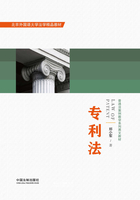
Lewell v.Lewis
Circuit Court,D.Massachusetts,1817
15 F.Cas.1018
STORY,CIRCUIT JUSTICE.
To entitle the plaintiff to a verdict,he must establish,that his machine is a new and useful invention; and of these facts his patent is to be considered merely prima facie evidence of a very slight nature.He must,in the first place,establish it to be a useful invention; for the law will not allow the plaintiff to recover,if the invention be of a mischievous or injurious tendency.The defendant,however,has asserted a much more broad and sweeping doctrine; and one,which I feel myself called upon to negative in the most explicit manner.He contends,that it is necessary for the plaintiff to prove,that his invention is of general utility; so that in fact,for the ordinary purposes of life,it must supersede the pumps in common use.In short,that it must be,for the public a better pump than the common pump; and that unless the plaintiff can establish this position,the law will not give him the benefit of a patent,even though in some peculiar cases his invention might be applied with advantage.I do not so understand the law.The patent act (of 1793) uses the phrase“useful invention”mere incidentally; it occurs only in the first section,and there it seems merely descriptive of the subject matter of the application,or of the conviction of the applicant.The language is,“when any person or persons shall allege,that he or they have invented any new and useful art,machine,”& c,he or they may,on pursuing the directions of the act,obtain a patent….All that the law requires is,that the invention should not be frivolous or injurious to the well-being,good policy,or sound morals of society.The word“useful,”therefore,is incorporated into the act in contradistinction to mischievous or immoral.For instance,a new invention to poison people,or to promote debauchery,or to facilitate private assassination,is not a patentable invention.But if the invention steers wide of these objections,whether it be more or less useful is a circumstance very material to the interests of the patentee,but of no importance to the public.If it be not extensively useful,it will silently sink into contempt and disregard.
Notes and Comments
1.This was a case decided by Justice Story before he came to the Supreme Court of the United States.This case raised a fundamental issue: whether an inventor should be given the exclusive right,i.e.,a patent,to an invention that allegedly does not demonstrate general benefit over the existing technology.First of all,there is an evidentiary problem to this issue: who should bear the initial burden to prove his point? Is the patent applicant who must show by evidence that his invention will actually work as intended? Or he can simply claim that it will.Conversely,if an opponent raises this issue,should he come up with some evidence that the invention will not,or might not,work as intended? At least the Patent Act does not require an applicant to do so with evidence,because there is a general presumption that every invention is intended to work,better or not,or else,the inventor would not bother to spend time and money to pursue the invention,and more time and money to secure a patent,let alone tremendous amount of time and money to sue an infringer.
2.Usually,it is one thing for a patent examiner to raise the theoretical question of usefulness during patent prosecution,it is quite another for a defendant to say so,because his very act of exploiting the invention for commercial purposes has in and of itself been a demonstration that the invention is highly useful,or he would not waste his time and money in doing a useless thing.